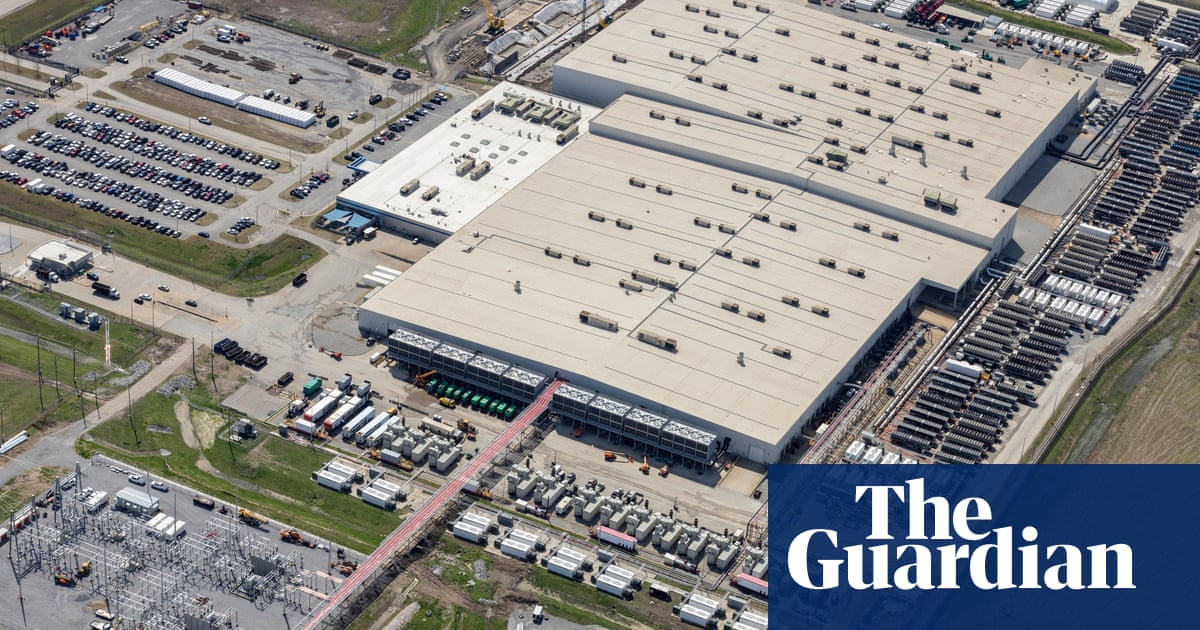Photo credit: www.theguardian.com
Controversy Erupts Over Elon Musk’s xAI Supercomputer in Memphis
Elon Musk’s artificial intelligence venture, xAI, is at the center of a heated debate in Memphis, Tennessee, as the company establishes a substantial supercomputer to facilitate its operations. Community members and environmental activists have raised alarms, claiming that since the supercomputer became operational last summer, it has emerged as one of the leading sources of air pollution in the region. In contrast, some officials have lauded Musk’s financial commitment to the city.
The initial public hearing involving the local health department is set for Friday, where stakeholders will present their views on the issue. Leading up to this event, residents of historically Black neighborhoods received anonymous flyers asserting that xAI’s emissions were low. Meanwhile, environmental advocates have been compiling evidence to quantify the pollution allegedly generated by the AI facilities.
The controversy intensified earlier this month when the Southern Environmental Law Center disclosed that xAI had covertly deployed at least 35 portable methane gas turbines without the necessary air permits to power its supercomputer. The organization argues that this significant number of generators has the potential to supply energy for an entire city and are major contributors to harmful emissions.
This revelation was based on satellite imagery taken by the law center. Following the announcement, Memphis Mayor Paul Young addressed the situation at a public forum, stating that his discussions with xAI indicated the company was not fully utilizing the gas generators. WREG News reported Young’s assertion that only 15 of the turbines are currently operational, with the others stored at the site.
“There are 35, but there are only 15 that are on,” Young said. “The other ones are stored on the site.”
Subsequent investigations by the Southern Environmental Law Center, including thermal imaging, revealed that 33 turbines were emitting substantial heat, suggesting they were in operation. “It is appalling that xAI would operate more than 30 methane gas turbines without any permits or public oversight,” stated Amanda Garcia, a senior attorney with the law center. “xAI’s failure to disclose that it’s running dozens of these polluting turbines at its south Memphis data center has left Memphians in the dark about what is being pumped into the air they breathe every day.”
Both xAI and the Shelby County health department have not responded to inquiries regarding the situation.
Musk has dubbed the xAI supercomputer “Colossus,” designed to support the operations of xAI’s chatbot, Grok. The facility encompassing Colossus is comparable in size to 13 football fields, and Musk has indicated plans to expand it further.
In a recent move to bolster xAI’s infrastructure, Musk acquired another property in Memphis covering 1 million square feet. The energy demands of artificial intelligence are considerable, predominantly sustained by fossil fuel sources in the United States. Notably, several residential neighborhoods in proximity to xAI have endured long-term industrial pollution, with a higher prevalence of health issues such as cancer and asthma, contributing to lower life expectancies in these communities.
Local residents have expressed strong opposition to xAI, advocating for increased regulatory oversight and environmental safeguards. In recent days, thousands received flyers that downplay the emissions from xAI’s gas turbines. These materials were disseminated by an untraceable group named “Facts Over Fiction,” which describes the turbines as “cleaner tech” and asserts they are “minor” polluters due to their reliance on gas instead of diesel or coal. The flyers claim these generators are low-emission and fall under the regulation of the Environmental Protection Agency and the Shelby County health department, both of which have confirmed that no permits have been granted for xAI’s gas generators.
“Those 15 xAI turbines?” one flier reads. “They’re specially designed to protect the air we all breathe.”
Tennessee state representative Justin Pearson, who represents the area, publicly criticized the flyers in an Instagram post, accusing them of misrepresenting the methane pollution linked to xAI. He emphasized the adverse health effects associated with methane, linking it to increased instances of asthma and respiratory illnesses. Pearson urged community members to attend the public hearing and emphasized the need to counter misinformation, asserting, “Clean air is a human right, and the [Shelby County health department] has a duty to protect the air we breathe.”
Source
www.theguardian.com

